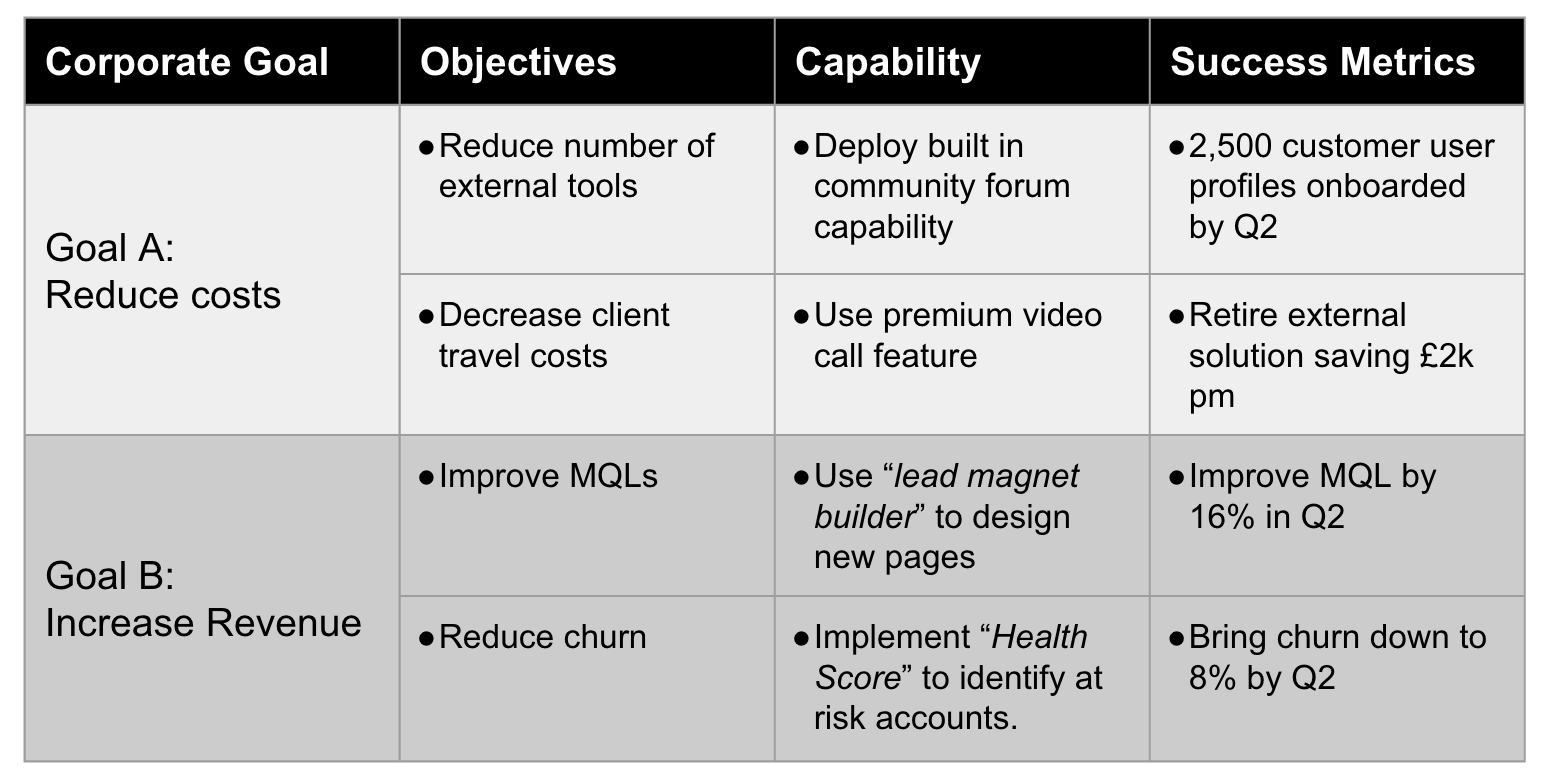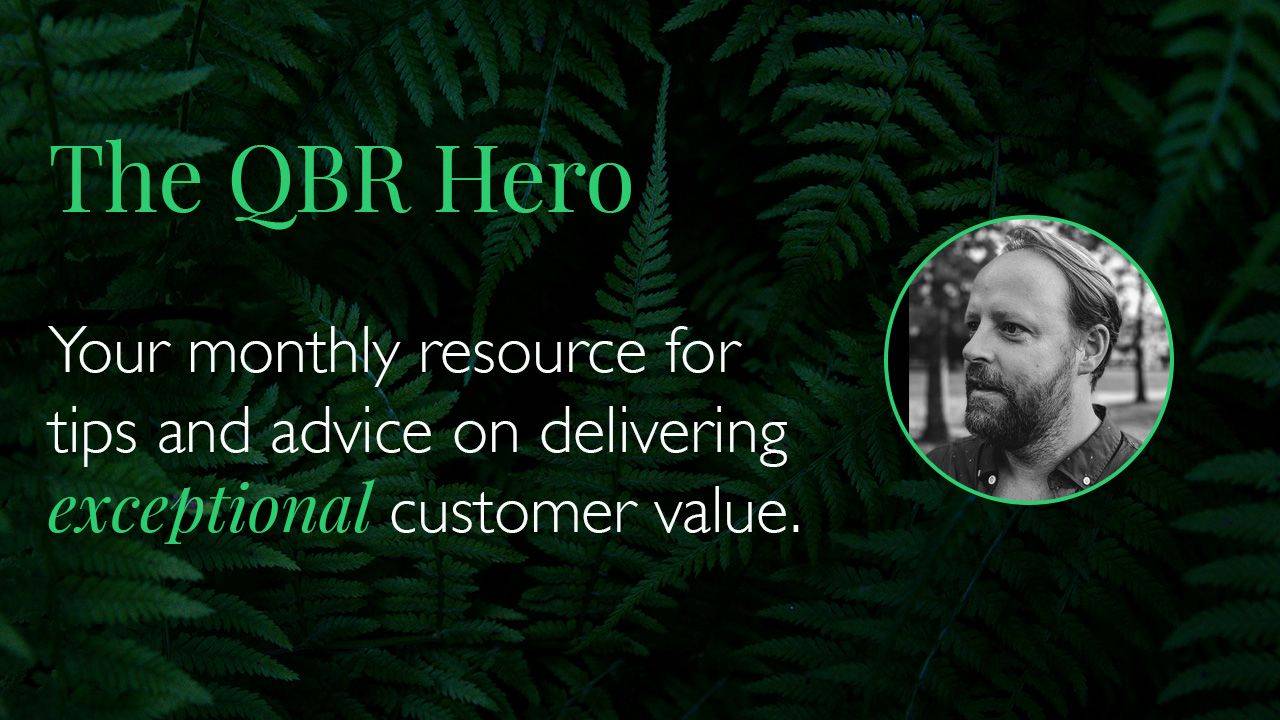QBRs Are A Value-Driven Conversation
I've recently come across a few LinkedIn posts with comments like "Swap the QBRs for value-driven conversations." This phrase leaves me entirely astounded. I don't know what a QBR is if it's not a value-driven conversation. I really don't. For me, a QBR is, and always has been, a strategic conversation with your senior stakeholders. It's not just a meeting, it's a strategic opportunity to align with your customer on their long-term goals. However, it's clear that many others don't see it this way. I suspect they've presented basic data (adoption, user logins) that is more like a report. For Enterprise CSM, that's entirely the wrong approach and misses a key strategic opportunity.
What is Value Conversation
In all of my articles and posts so far, I've talked about QBRs in isolation, but there is one vital document that dovetails with QBRs: your Success Plan. I could run SF Cooper Ltd, entirely talking about Success Plans instead of QBRs, as they're that important, but to date, I've kept them out of my content. Now is the time to bring them into the conversation.
The Success Plan is where we document our customer's goals and objectives. It's not just a plan, it's a roadmap to success. It's where we record what desired success looks like. It's where the customer tells us what value means to them, and it's subsequently where a CSM demonstrates the value they've delivered. It forms the account roadmap and should help determine a CSM's actions on an account.
A simplistic Success Plan could look like the following:

My Success Plans have four key elements.
- Company Goals
- Key Objectives
- Platform Capabilities
- Success Metrics
(At this point, it's also good to be very clear on the difference between goals and objectives: goals are broad, long-term aspirations, while objectives are specific, measurable, and time-bound actions that support those goals. Goals define what you want to achieve, and objectives define how you'll get there. )
Goals and Objectives are clear, but let me explain the Platform Capabilities. Here is where you map the features and functions in your platform that can solve the objective. For example, if a customer goal is to "disseminate our performance data quickly and easily to the wider team", you would use the Dashboard functionality in your platform. The customer should have a Success Metric attached to that. For instance, "Reduce the time we spend on reporting by 60% by Q2."
And that last part is the value.
With a Success Plan, the goal and desired outcome are clear, and a CSM should do everything they can to ensure their users are taking advantage of the dashboard feature (and other related aspects) to reduce the time spent on reports. You must track this metric, and typical questions are: What is it today? How will we measure the improvements?
In your future QBRs, you can provide an update on this metric. "We completed the target early, reducing time spent on reporting by 60% in Q1." or "We missed the target and only reduced reporting by 40% by the end of Q2."
Your Performance Determines your actions
Success Metrics are not just numbers, they drive your actions. They are the compass that guides your next steps. They are the key to understanding your performance and planning your future actions. They drive your actionsYou've undoubtedly realised that your performance will drive your actions/next steps. In the instance where the target was missed, and time was only reduced by 40%, what are you planning to get that final 20%?
The QBR naturally becomes an ideal opportunity to align on the customer goals. If you delivered the 60% time saving, you should be asking the questions:
- What's next?
- What is the plan for users to use that newfound time?
- Where else can we make more savings?
- What is the new priority?
As you can see, QBRs ARE a value-driven conversation, anything else, and you're missing the point.
I could write more on Success Plans and how they are a crucial part of any QBR but I will leave it here for now.
Are your QBRs discussing goals and values like this? Do you already use a Success Plan?
Be sure also to check out my recent article on why CSMs need to 'own' QBRs.

Follow me on LinkedIn: Personal | Company
When you're ready, explore the ways I can help you further.


Responses